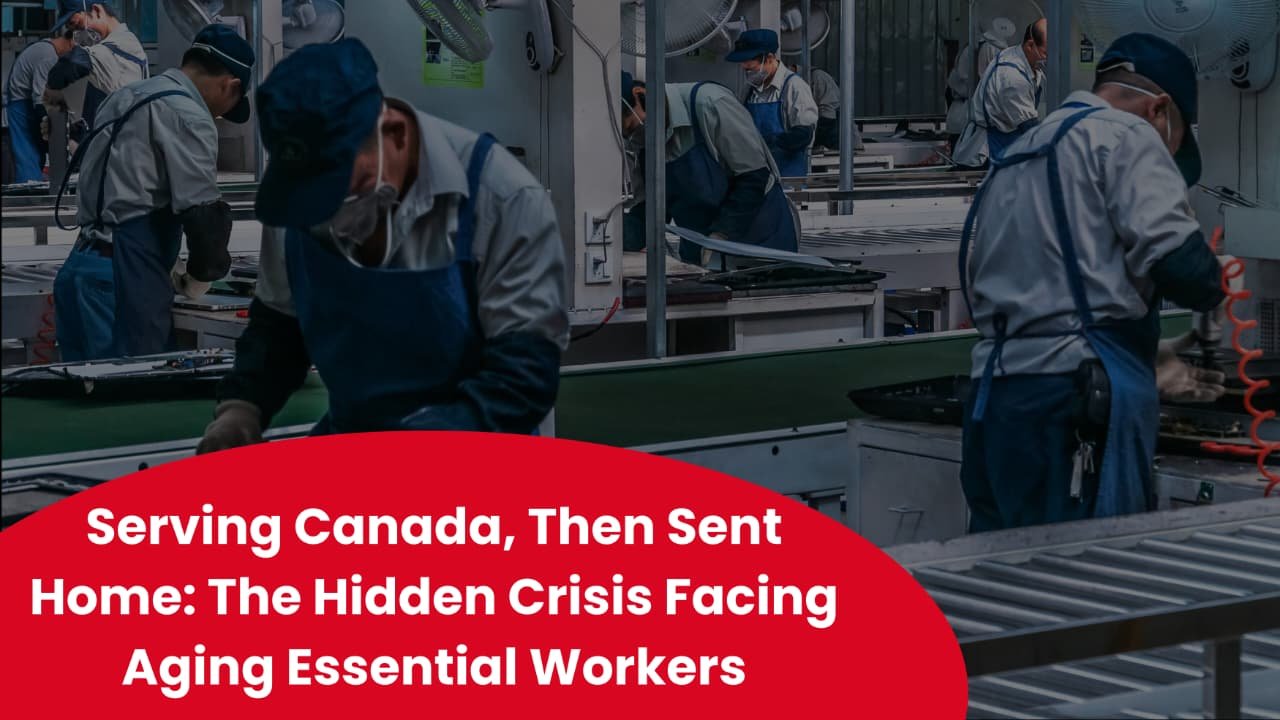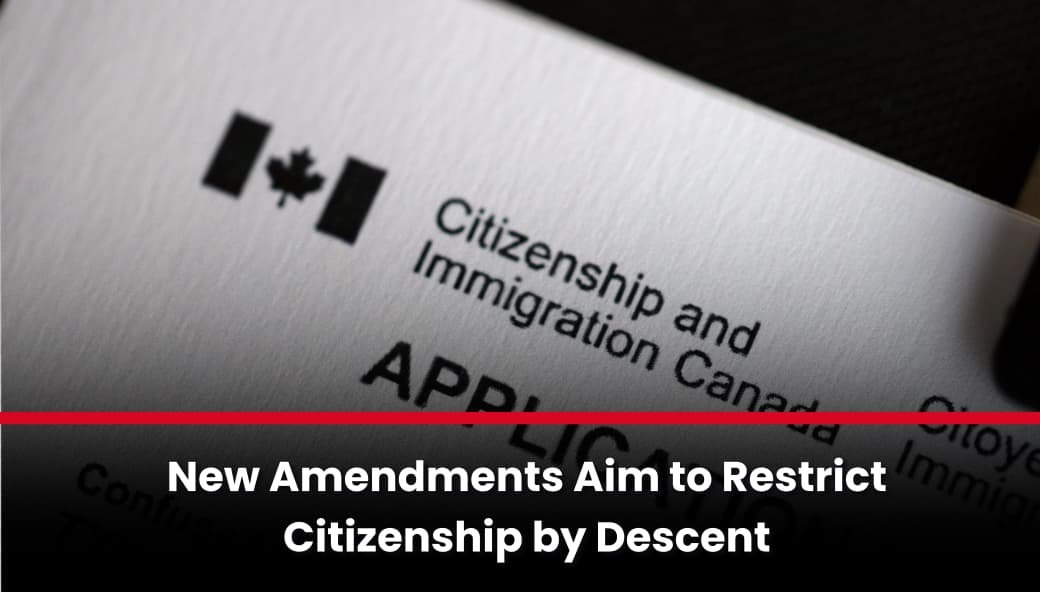For many years, essential workers in Canada, especially those in long-term care, home caregiving, and personal support positions, have played a vital role in ensuring community safety, assisting our aging population, and addressing significant healthcare shortages. A considerable number of these caregivers came through temporary immigration programs, often enduring difficult working conditions for many years, even decades.
Book Your Consultation for Canadian Immigration
However, as these caregivers grow older, they confront a shocking and unjust reality: there is no assured pathway to permanent residency (PR). Even though they are crucial to the nation’s healthcare system, they are at risk of deportation, losing their status, or being caught in legal uncertainty. By 2025, this quiet crisis has escalated into a concerning policy failure. It not only affects individuals, but also jeopardizes the sustainability of Canada’s future workforce.
The Root of the Crisis: Policy Gaps and Bureaucratic Injustice
Aging Without Immigration Security
Canada has acknowledged the importance of caregivers through dedicated PR pathways. However, access continues to be restrictive, selective, and slow. Recent pilot initiatives introduced by Immigration, Refugees and Citizenship Canada (IRCC) still enforce age restrictions, quotas, and technical criteria that exclude many dedicated workers.
Key Stats (2019–2023):
- Total caregiver program applicants: 37,568
- Applications processed by March 2023: 6,125 (just 16%)
- Permanent residency approvals: ~2,581 (only 7% of all applicants)
- Processing time: 31 to 36 months (well above the 12-month target)
Sources: CCPA, CIC News, Sohi Law Group
For caregivers over 55, the likelihood of aging out of eligibility under current rules is increasing — even after years of contributing to roles experiencing severe labour shortages.
Employer-Tied Permits Fuel Dependency
The majority of caregivers enter Canada on employer-specific permits, which severely limit job mobility. If their employment is terminated or if they experience abuse, they risk losing their legal status immediately.
A 2021 House of Commons Committee report found that temporary foreign workers:
- Have limited access to settlement services
- Are vulnerable to labour exploitation and mental health challenges
- Depend entirely on employer cooperation for PR sponsorship
This system gives employers disproportionate control, leaving caregivers vulnerable and powerless in addressing workplace abuse or instability.
Data Snapshot: The Growing Problem in Numbers
| Issue | Data |
|---|---|
| Total caregiver applications (2019–2023) | 37,568 |
| Applications processed (as of Mar 2023) | 6,125 (16%) |
| PR approvals | 2,581 (7% of applicants) |
| Average processing time | 31–36 months |
| New PR quotas (2025 Home Care Pilot) | 2,750 total; only 150 for out-of-status workers |
Sources: CCPA, CIC News, Wikipedia
Real Lives, Real Impact: Stories of Aging in Limbo
Behind the statistics are people — caregivers who gave their prime working years to Canada but now face an uncertain future.
- Migrant nurses and PSWs with international credentials remain locked in unregulated roles due to lack of credential recognition.
- Many caregivers over age 55 are now ineligible for PR despite over 10 years of continuous service.
- The majority are racialized and migrant women, yet they receive the fewest protections and pathways to settlement.
This is not just an immigration issue. It is a matter of human rights and labour justice.
Why This Matters: Human and Economic Implications
1. Severe Labour Shortages
Canada is already dealing with an aging population and is projected to face a shortfall of 200,000 healthcare workers by 2031 (Statistics Canada). Losing experienced caregivers due to restrictive immigration policies worsens this gap.
2. Humanitarian Impact
Many caregivers who have spent 10 to 15 years serving families are now facing deportation at retirement age. This raises serious ethical concerns around fairness and national integrity.
3. Broken Promises and Policy Failures
Programs like the 2025 Home Care Worker Pilots offer only 2,750 PR spots. Out of these, a mere 150 are designated for workers who are already out of status — a fraction of those in need.
4. Ethical and Global Scrutiny
In 2023, the United Nations criticized Canada’s temporary foreign worker system as a “breeding ground for modern slavery” due to its power imbalance, lack of job mobility, and absence of long-term rights.
What Needs to Change: A Human-Centered Approach
To address this growing crisis, Canada must transform how it treats essential caregivers:
- Guarantee PR for Long-Serving Caregivers
Workers with 5 to 10 years of service should receive automatic or prioritized access to permanent residency, regardless of age. - Shift to Open Work Permits
Move away from employer-tied permits and adopt sectoral or open permits that protect worker rights and reduce dependence. - Accelerate PR Processing Times
IRCC must meet its own service standards and ensure transparent, timely processing of applications. - Recognize Foreign Credentials
Introduce fast-track programs to integrate internationally trained healthcare workers into regulated professions. - Ensure Access to Support Services
Provide legal aid, mental health support, and settlement resources even to those on temporary status.
Conclusion: A Crisis We Can No Longer Ignore
Canada depends on essential workers to care for the elderly, support families, and keep our healthcare systems functioning. Yet too many caregivers, especially older ones, are being forgotten and left behind without legal protection.
They deserve better.
Without immediate reform, Canada risks losing not only these experienced workers but also its moral authority as a nation committed to equity, service, and human dignity.
Value-Added Takeaway for Readers
Whether you’re a legislator, advocate, or concerned citizen, you can take action:
- Support initiatives that reform immigration laws for caregivers
- Speak with your MP about creating fair and inclusive PR pathways
- Assist organizations offering legal support to caregivers in limbo
Change is not only possible — it is necessary. Now is the time to stand up for those who have cared for us all along.





